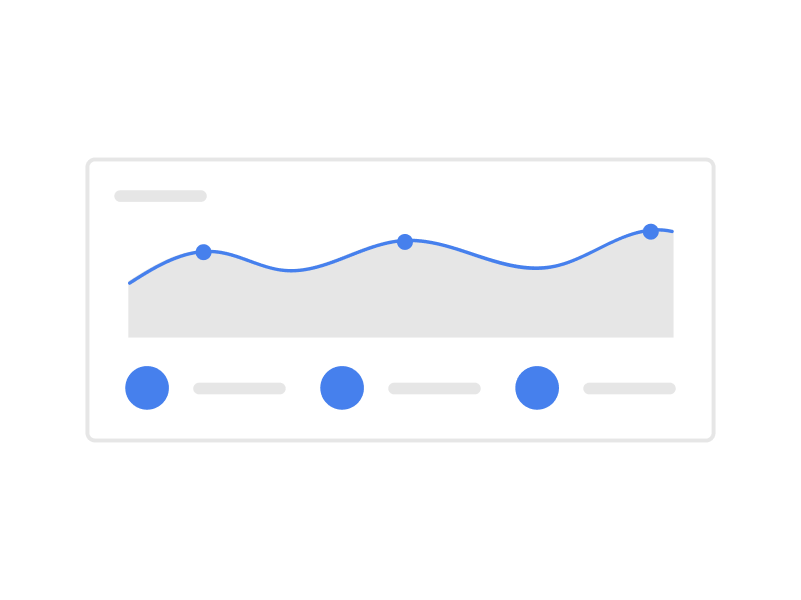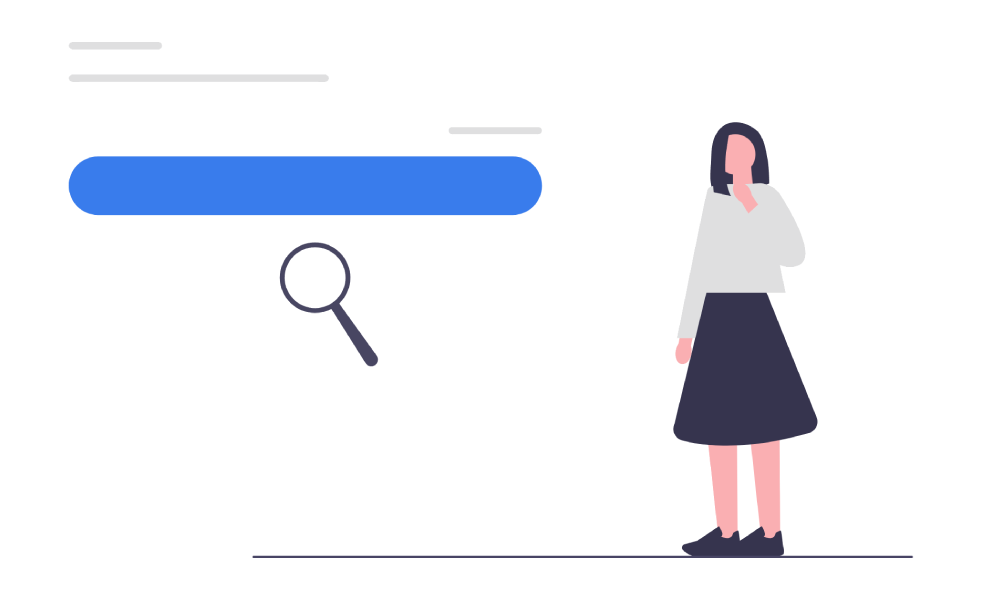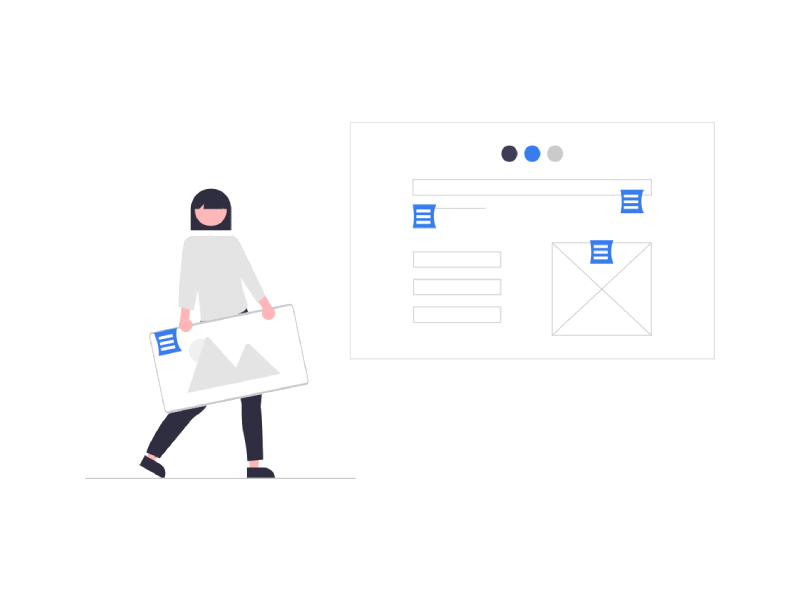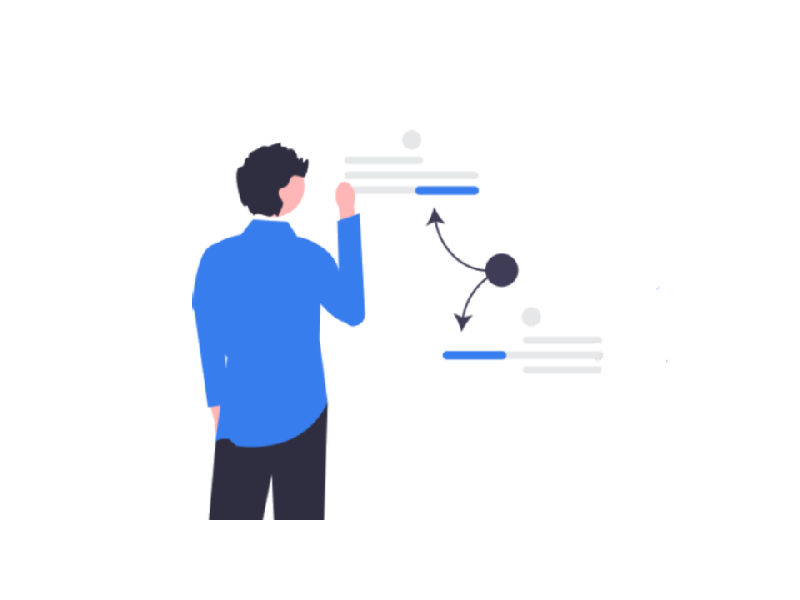Search Engine Optimization (SEO) implies improving a website’s visibility and ranking in search engine results. Businesses and websites need to rank well in SERP because it helps them reach more potential customers and drive more organic traffic.
When people search for products or services online, they usually don’t go beyond the first few pages of search results. Therefore, if a website doesn’t rank well, it’s less likely to be seen by potential customers. By improving a website’s on-page optimization and off-page optimization, businesses and websites can increase their chances of appearing at the top of search results and reaching more potential customers.
Additionally, SEO is an ever-evolving process, and staying on top of the latest trends and SEO techniques can be daunting. But it’s crucial to keep in mind that SEO is not just about ranking higher in search engine results. It’s also about providing a better user experience for visitors. This means creating high-quality content, making the website easy to navigate, and ensuring fast loading speed.
In this article, we will be discussing on-page SEO vs. off-page SEO and how they work together to boost your organic traffic and google ranking. We will also provide on-page & off-page SEO tips and best practices to help businesses and websites to improve their content marketing strategy and ultimately drive more traffic to their website.
What Is On-Page SEO?

Why is on-page SEO important? On-Page SEO is all about making sure your website is set up in the best way possible for search engines to understand what it’s all about. How to do on-page SEO? It’s like tidying up your house before guests come over. You want everything to be in the right place, easy to find, and looking its best.
That’s why title tags, sitemap, mobile optimization, and keyword research are the most important on page SEO elements. These are all little pieces of information that show search engines what your website is about and make it more likely for them to show your website to the right people.
Overall, on-page SEO techniques are about making sure your website is set up in the best way possible for search engines to understand what it’s all about and to make it easy for users to find and navigate. By following this on-page SEO guide, businesses and websites can improve their visibility and ranking in search engine results, drive more traffic to their website, and ultimately reach more potential customers.
What Is Off-Page SEO?

Off-page SEO tools are about everything that happens outside of your website that can affect your search engine rankings. How to do off-page optimization? It’s like networking and building relationships outside of your office or home. The more connections you have, the more opportunities you have to get your name known.
That’s why off-page optimization in SEO focuses on things like backlinks, social signals, and online reviews. Backlinks are links from other websites that link to your website, and search engines consider them as a vote of confidence. Social signals are likes, shares, and mentions of your website on social media platforms, and online reviews are feedback from customers on review sites like Yelp or Google. All of these off-page SEO techniques can help boost your website’s visibility and ranking in search engine results.
Overall, off-site factors are about building relationships and connections outside of your website to improve your visibility and ranking in search engine results. It’s an ongoing process, and it’s important to regularly review and adjust your SEO implementation strategy to ensure it stays relevant and effective.
Comparison of On-Page and Off-Page SEO

On-page optimization and off-page optimization are two main types of SEO that work together to boost a website’s visibility and ranking in search engine results. Both types of SEO have similarities and differences, and businesses and websites need to understand how they work together to improve their search engine rankings.
Similarities:
- Both On-page and Off-page SEO aims to broaden a website’s visibility and ranking in SERP
- Both types of SEO are important for providing a better user experience
- Both types of SEO require a website to have high-quality content and be easy to navigate
Differences:
- On-page SEO focuses on optimizing the content and website structure, while off-page SEO focuses on increasing the credibility and authority of a website.
- On-page SEO elements are within the website’s control, such as title tags, meta descriptions, header tags, and keyword research, while off-page SEO elements are external, such as backlinks, social signals, and online reviews.
- On-page SEO is more focused on the website’s internal optimization, while off-page SEO is more focused on building a website’s reputation and popularity.
Both on-site and off-site SEO strategies work together to improve a website’s visibility and ranking in search engine results.
On-page factors SEO helps search engines understand what a website is about and how relevant it is to a particular search query. Off-site SEO factors help increase the credibility and authority of a website and make it more popular among users.
It’s important to note that a balance of both types of SEO is needed for a website to rank high in search engine results. By focusing on both on-page optimization and off-page optimization, businesses and websites can improve their visibility, drive more organic traffic to their website and ultimately reach more potential customers.
Ways to Improve On-Page SEO

On-page SEO involves optimizing a website’s content and structure to improve its visibility and ranking in search engine results. There are several on-site SEO elements that influence search results:
Keyword Research
Keyword research is the first step in on-page SEO, as it helps identify the terms and phrases people use to search for products or services online. Once you have a list of relevant typical keywords and long-tail keywords, it’s important to include them in the content of your website, as well as in meta tags, meta descriptions, alt tags, and header tags. It will help search engines understand what your website is about and how relevant it is to a particular search query. However, it’s also important to use keywords naturally and not stuff them throughout the content. It can lead to penalties imposed by search engines.
Content Optimization
It’s essential to create high-quality and relevant content that provides value to the users to improve on-page SEO. The content of your website should be well-written, informative, and engaging. It should also be regularly updated to remain fresh and relevant. Additionally, the content should be well-structured and organized, making it easy for users to find what they’re looking for.
Title Tags
A title tag is a text that appears in the browser tab and is also used as the title of a webpage in search engine results. Title tags should be unique and accurately describe the content of the webpage. It is important to keep title tags under 60 characters, as search engines will truncate a title tag if it’s too long.

Meta Description
The meta description can be described as a brief summary of a webpage’s content and appears in search engine results below the title. Meta descriptions must be unique and accurately describe the content of the webpage. Keeping the meta description under 155 characters is vital, as search engines will truncate it if it’s too long.

Alt Text
The alt text describes web page images and is important for accessibility and SEO. Alt text helps search engines understand the content of an image and can also be used to optimize for keywords. It’s crucial to use descriptive and relevant alt text for images, as it will help search engines understand the context of the image and will also be useful for visually impaired users.
Headings (H1-H6)
Header tags (H1, H2, H3, etc.) are used to organize and structure the content of a webpage. They show search engines the hierarchy of information on a webpage and can also be used to optimize for keywords. Using only one H1 tag per page and H2 – H3 tags for subheadings is critical.

Website Structure
The website structure, including headings, lists, and other formatting elements, can impact the readability and SEO of a webpage. A well-structured website will make it easy for users to find what they’re looking for and help search engines determine the type of content on a webpage.
URL Structure
The URL structure of a webpage should be clean and easy to understand, with keywords used in the URL whenever possible. The URL structure should also be easy to remember and share.
Internal Linking
Internal linking implies linking to other pages within the same website. Internal linking helps search engines understand the website structure and can also be used to distribute link equity among pages. Using descriptive and relevant anchor text for internal links is important, as it will help search engines understand the link’s context and be useful for users.
Schema Markup
Schema markup is a structured data type that can be added to a webpage to provide more information about the content of a webpage to search engines. It helps search engines understand website structure better, making it easier for them to return relevant results to users. Examples of schema markup include reviews, events, and articles. Schema markup can help your website stand out in the search results with rich snippets, increasing the click-through rate.


Core Web Vitals
Core Web Vitals can be defined as a set of performance metrics that measure a website’s loading speed and user experience (UX). They are crucial on-page SEO techniques, as they provide a better user experience. A website with good Core Web Vitals will have a higher chance of ranking well in search engine results. To improve your Core Web Vitals, you can focus on content optimization (images, videos), speed optimization, reducing the number of requests, and using a Content Delivery Network (CDN).
User Experience (UX)
User Experience (UX) is an important aspect of on-page SEO, as it helps to provide a better customer journey for users. A website with a good UX will be more likely to rank well in search engine results. To improve your website’s user experience (UX), you can focus on providing clear navigation, making your website responsive and fast-loading. You can also conduct user testing and gather feedback to understand the user’s perspective, which will help you improve your website’s UX.
Ways to Improve Off-Page SEO

Off-page SEO implies optimizing a website’s visibility and ranking in search engine results outside the website. There are several off-page optimization steps:
PR
Public Relations (PR) is the off-page SEO tool for building relationships with media outlets and influencers to gain website coverage and exposure. This influencer marketing can take the form of news articles, feature stories, or interviews, and it can help increase a website’s credibility and authority. By reaching out to journalists and bloggers in your industry, you can secure valuable media coverage that can help to boost your website’s visibility and search engine rankings. It’s crucial to have a solid press release and a media kit ready before reaching out to the journalists, and also make sure that the information you provide is relevant, informative, and newsworthy.
Social Media Optimization
Social media platforms are an excellent way to promote a website and increase its visibility and ranking in search engine results. By regularly posting high-quality and engaging content on social media, you can attract more followers, increase your website’s social signals, and drive more organic traffic to your website. Furthermore, by interacting with your followers and responding to their comments and messages, you can build a community of loyal fans who will help promote your website. Additionally, social media optimization via paid advertising boosts your website’s visibility and reaches a larger audience.
Influencer Marketing
Influencer marketing implies working with individuals with a large social media following to promote a website. By working with influencers, you can reach a large audience and increase the visibility and ranking of your website. Influencer marketing can help you promote your website more authentically and engagingly, increasing trust and credibility with your target audience. Additionally, by collaborating with influencers, you can gain juicy backlinks to your website, which can help boost your website’s visibility and rank in search engine results. Researching and finding the right influencers in your industry that align with your brand is vital. Also, make sure to create a detailed content marketing strategy with clear goals and engagement metrics to measure the campaign’s success.
Guest Posting
Guest posting is the practice of writing content for other websites to gain exposure and build backlinks to your website. By guest posting on high-quality and relevant websites, you can increase your website’s credibility and authority and attract more organic traffic. It’s essential to do your research and find relevant websites in your industry that accept guest posts. Also, make sure to create high-quality and informative content that will provide value to the website’s readers.
Backlinks
SEO backlinks can be defined as links from other websites that point to a particular webpage. Search engines consider backlinks as a vote of confidence for a website, and a higher number of high-quality backlinks can improve a website’s visibility and rank in search engine results. High-quality SEO backlinks are those from a reputable website relevant to your industry.

Local SEO
Local SEO implies optimizing a website to rank well in search engine results for specific geographic locations. By optimizing for local SEO, you can increase the visibility of your website for users in your local area, making it more likely that they will visit your business. This can be achieved by creating and verifying your business listing on Google My Business, Bing Places, and other local directories and by including your location and contact information on your website. You can also consider geo-relevant backlinks. Apart from that, you can also improve your local SEO by encouraging customers to leave reviews on local directories and review sites. It’s important to keep your business information consistent across all directories and review sites, and also make sure to respond to any positive or negative reviews.

PPC
Pay-per-click (PPC) advertising is the kind of online advertising where advertisers pay each time a user clicks on one of their ads. PPC can be a great way to quickly drive organic traffic to your website and improve your visibility in search engine results. You can ensure that your ads reach the right audience by targeting demographics and performing proper keyword research. Additionally, you can improve your ROI and get the most out of your advertising budget by using analytics tracking and making adjustments as needed.
Social Proof
Social proof implies that people are more likely to trust and do business with a company that others have recommended. You can increase trust and credibility with your target audience by including customer testimonials, social media optimization, and other forms of social proof on your website. By responding to customer reviews and feedback, you can also demonstrate that you value your customers’ opinions and are committed to providing a great user experience (UX).
Wrap-up

On-site vs. off-site content? On-page optimization and off-page optimization are both crucial elements for improving a website’s visibility and ranking in search engine results. On-page SEO techniques focus on optimizing the elements within a website, such as title tags, meta tags, header tags, and keyword research, while off-page SEO checklist focuses on external factors that can influence a website’s visibility and ranking, such as backlinks, social signals, and online reviews. Both on-page and off-page SEO tools improve a website’s visibility and rank in SERP.





